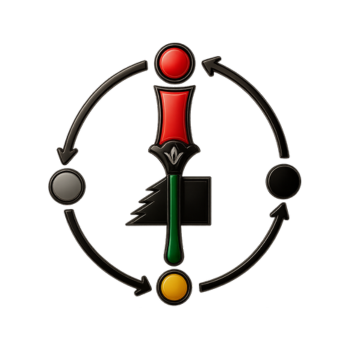-
“For hundred of years the religion of the Bantu has been veiled in a heavy “kaross” of mystery, even for those who have followed it. People – the ordinary people, that is -were forbidden under pain or death or a High Curse from inquiring too deeply into some of the rites they had to perform. The High Custodians of the Great Belief were only allowed to tell the common people so much and no more. Even some of our chiefs and kings were kept in the dark. Such leaders discovered in the end that they were nothing but puppets dancing on strings held in the hands of a Tribal Custodian and his witchdoctors.
When the White Man came to Africa, bringing Christianity with him, the Custodians of the Belief urged the chiefs and chieftainesses of the tribes to resist the “Strange Ones” and their alien creed. But when the Bantu were finally defeated they did what they had done nearly three thousand years before when the Ma-Iti invaded the lands of the tribes: to ensure that the Great Belief would not die, they selected a number of men, and women, from every tribe and binding them by a series of High Oaths, they told them everything there was to know about the Belief.
There are so many High Legends to remember and so many stories of holymen, chiefs and witchdoctors that no human mind can hold all these and yet remain sane. A custodian-elect had to know so much that there was the great danger of forgetting many things, leaving what could be remembered in an inaccurate or distorted form. There was only one way to solve this problem. The Great Knowledge was divided into many parts and subdivisions. Men were then chosen from different walks of life – blacksmiths, woodcarvers, medicine men and others from each tribe. The blacksmiths were told everything about the history of metal working in the lands of the Bantu, the characteristics of the various kinds of metal and how to recognise the minerals from which these can be produced.
They were told all the legends appertaining to metal and the rites and ceremonies a blacksmith must perform, and what laws he must obey, and why. The Chosen Blacksmith was under High Oath and, sworn to secrecy, commanded to impart all this knowledge to his sons, and they to their sons, without adding or subtracting a single word. The same thing was done to the Medicine Men, the Tribal Narrators, the Woodcarvers, and so forth. Then, in every tribe the High Custodian formed a Hidden Brotherhood of High Custodians (Secret Society) whose duty it was continually to watch the Chosen Custodians ensuring that they had not forgotten anything, allowed nothing to leak to strangers, and imparted to chiefs and certain elders and “Indunas” what they were required to know.
The Hidden Brotherhood was also there for all the Chosen Ones to report to annually for additional checks, clarification, confirmation, and to receive new knowledge acquired in the meantime. The Hidden Fraternity also met in places where the young Chosen Ones were made to take oaths when they assumed duty. The most important obligation was to swear never to reveal the identity of any one of the High Hidden Ones, where given (and still are given) the reverence and the respect due to a Lesser God.”
2 Comments-
From the book: Indaba, My Children: African Tribal History, Legends, Customs and Religious Beliefs by Vusamazulu Credo Mutwa.
-
This would make a BlackStatic cinematographic work, if it is well adapted. Asante fo the sharing dada!
-

